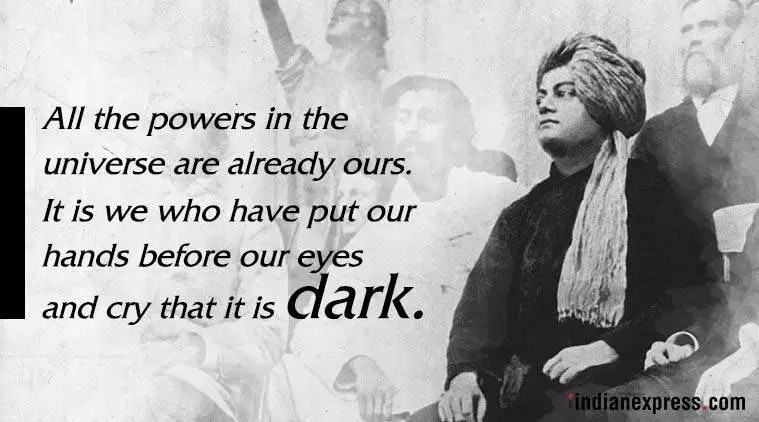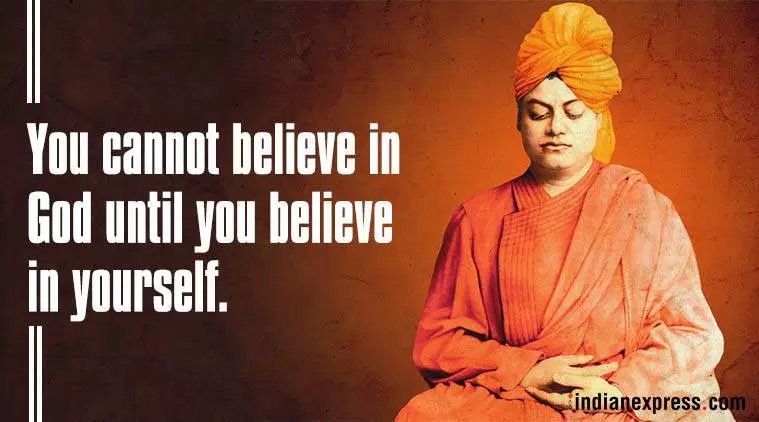
Swami Vivekananda Quotes: One of India’s most revered spiritual leaders, Swami Vivekananda was instrumental in introducing the Indian philosophies of Vedanta to the western world. Born in Kolkata on January 12, 1863, as Narendra Nath Datta, it was in 1887 that he along with other disciples of Ramakrishna Paramhansa took formal vows of sannyasa and renounced the worldly pleasures.
With a special interest in Western philosophy and history, he was often assailed by doubts about the existence of God. Through his speeches and lectures, Vivekananda tried to awaken the religious consciousness among people and also tried to uplift the downtrodden using the principles of practical Vedanta.
To take his message to a wider audience, he attended the World’s Parliament of Religions in Chicago in 1893. His iconic speech there that touched topics like universal acceptance, tolerance and religion, got him a standing ovation.
On his death anniversary, let’s take a look at some his inspirational quotes that might change the way you look at life:
* If faith in ourselves had been more extensively taught and practiced, I am sure a very large portion of the evils and miseries that we have would have vanished.

* All differences in this world are of degree, and not of kind, because oneness is the secret of everything.
* The fire that warms us can also consume us; it is not the fault of the fire.
* You have to grow from the inside out. None can teach you, none can make you spiritual. There is no other teacher but your own soul.
* Never think there is anything impossible for the soul. It is the greatest heresy to think so. If there is sin, this is the only sin, to say that you are weak, or others are weak.

* Neither seek nor avoid, take what comes.
* Ask nothing; want nothing in return. Give what you have to give; it will come back to you, but do not think of that now.
* Condemn none: if you can stretch out a helping hand, do so. If you cannot, fold your hands, bless your brothers, and let them go their own way.

* Where can we go to find God if we cannot see Him in our own hearts and in every living being.
* Truth can be stated in a thousand different ways, yet each one can be true.
* Do one thing at a Time, and while doing it put your whole Soul into it to the exclusion of all else.
* The moment I have realised God sitting in the temple of every human body, the moment I stand in reverence before every human being and see God in him – that moment I am free from bondage, everything that binds vanishes, and I am free.
* They alone live, who live for others.

* Comfort is no test of truth. Truth is often far from being comfortable.
* The world is the great gymnasium where we come to make ourselves strong.
If you are also interested in reading his speech then here is the extract that still continues to play a relevant role in society.
“It fills my heart with joy unspeakable to rise in response to the warm and cordial welcome which you have given us. I thank you in the name of the most ancient order of monks in the world; I thank you in the name of the mother of religions, and I thank you in the name of millions and millions of Hindu people of all classes and sects.
I am proud to belong to a religion which has taught the world both tolerance and universal acceptance. We believe not only in universal toleration, but we accept all religions as true. I am proud to belong to a nation which has sheltered the persecuted and the refugees of all religions and all nations of the earth.

I am proud to tell you that we have gathered in our bosom the purest remnant of the Israelites, who came to Southern India and took refuge with us in the very year in which their holy temple was shattered to pieces by Roman tyranny. I am proud to belong to the religion which has sheltered and is still fostering the remnant of the grand Zoroastrian nation. I will quote to you, brethren, a few lines from a hymn which I remember to have repeated from my earliest boyhood, which is every day repeated by millions of human beings: “As the different streams having their sources in different paths which men take through different tendencies, various though they appear, crooked or straight, all lead to Thee.”
The present convention, which is one of the most august assemblies ever held, is in itself a vindication, a declaration to the world of the wonderful doctrine preached in the Gita: “Whosoever comes to Me, through whatsoever form, I reach him; all men are struggling through paths which in the end lead to me.”
Sectarianism, bigotry, and its horrible descendant, fanaticism, have long possessed this beautiful earth. They have filled the earth with violence, drenched it often and often with human blood, destroyed civilization and sent whole nations to despair. Had it not been for these horrible demons, human society would be far more advanced than it is now. But their time is come; and I fervently hope that the bell that tolled this morning in honour of this convention may be the death-knell of all fanaticism, of all persecutions with the sword or with the pen, and of all uncharitable feelings between persons wending their way to the same goal.”